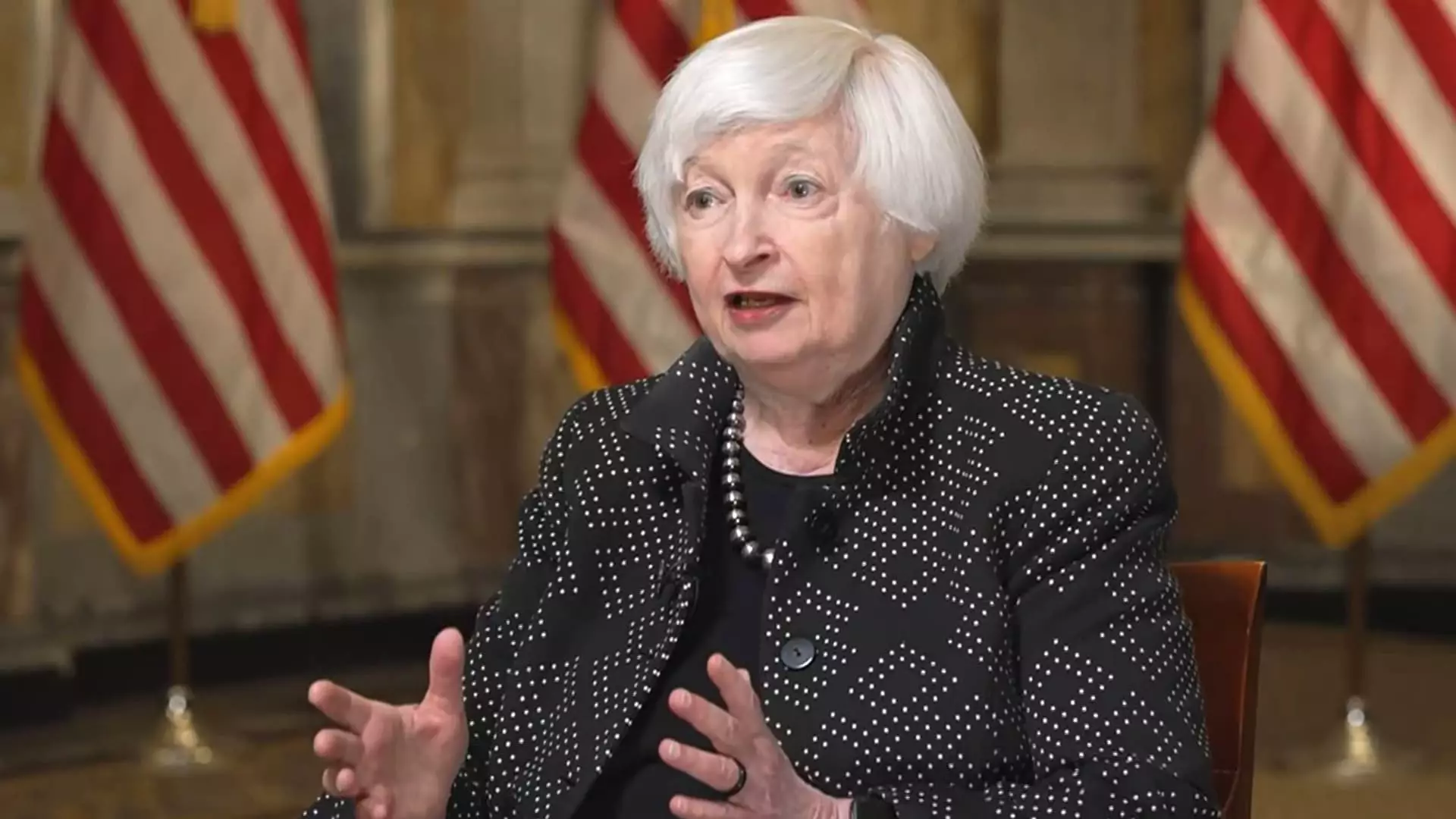In a recent exit interview, Treasury Secretary Janet Yellen engaged in an illuminating discussion regarding the economic ripple effects of the stimulus spending enacted under President Joe Biden’s administration. While she acknowledged that this $1.9 trillion relief package may have played a minor role in exacerbating inflation, she predominantly identified the issue as a consequence of supply-side disruptions stemming from the COVID-19 pandemic. This distinction between stimulus spending and the underlying causes of inflation sharply reflects ongoing debates concerning economic strategies used during one of the nation’s most turbulent periods.
Yellen emphasized the critical nature of the relief measures undertaken at the onset of Biden’s presidency, pointing to a dire situation where the nation faced rampant illness and significant unemployment. In her view, the economic stimulus was not just a financial decision, but a moral imperative aimed at alleviating widespread suffering. By framing the discussion in this manner, she invites a broader dialogue about the balance between immediate relief efforts and long-term economic stability.
Supply Chain Challenges and Price Pressures
Yellen’s remarks illuminate how pandemic-induced supply chain disruptions significantly influenced inflation. She highlighted shortages of essential goods that began to emerge as soon as the pandemic hit, noting that these issues were largely out of governmental control. Her assertion brings attention to the complexity of inflation, suggesting that while stimulus packages may have contributed to rising prices, they were not the primary culprits. The structural economic challenges were instead rooted in unprecedented global events that constrained production capabilities and goods availability.
Moreover, the implications of these supply chain issues span various sectors of the economy, revealing how interconnected our global systems are and the cascading effects that a pandemic can have on local markets. Yellen’s focus on this aspect of the crisis shifts blame away from policymakers toward the realities of global commerce, underscoring that policy responses must consider the broader economic landscape.
As Yellen prepares to leave her position, she also addressed claims regarding soaring U.S. deficits, which reached $1.8 trillion in the last fiscal year. While critics often cite these figures as evidence of fiscal irresponsibility under the Biden administration, Yellen defended the approach taken. She argued that the emphasis on deficit reduction remains a crucial focus of the current administration, contesting the notion that spending is solely responsible for economic deterioration.
In this context, she brought to light the history of discretionary spending, highlighting its current low levels despite soaring deficits. This perspective nuances the conversation around national debt, intertwining it with discussions of mandatory spending programs such as Social Security and Medicare, which are both politically sensitive and essential to many citizens’ well-being.
As Yellen prepares to pass the baton to Scott Bessent, a hedge-fund executive, she expressed optimism regarding the continuity of expert leadership at the Treasury. Her acknowledgment of Bessent’s background in finance suggests a desire for a smooth transition that could potentially navigate the economic landscape created by the pandemic and subsequent recovery efforts. She indicated that experience in financial markets would be essential for addressing both ongoing challenges and new ones that may arise as the nation emerges from the pandemic.
Yellen’s tenure has been marked by extraordinary challenges, yet her discussions during her departure offer insights into a complex economic landscape where moral, ethical, and fiscal considerations converge. As the U.S. continues on its recovery path, the lessons gleaned from her leadership and the policies enacted will undoubtedly shape future economic debates and decisions.



Leave a Reply